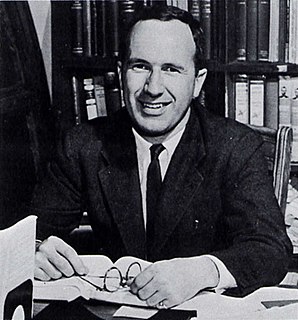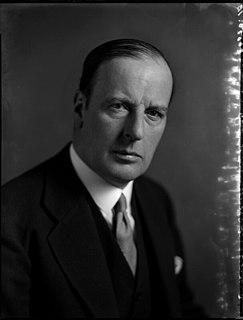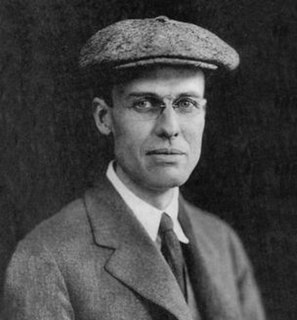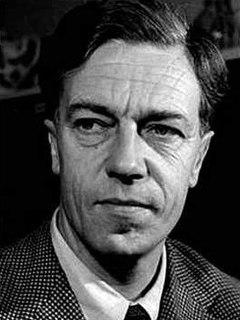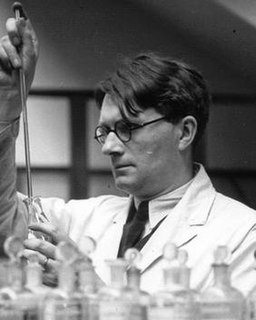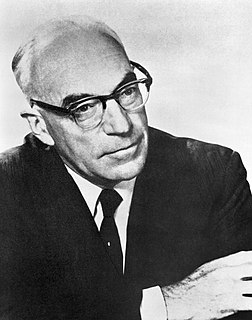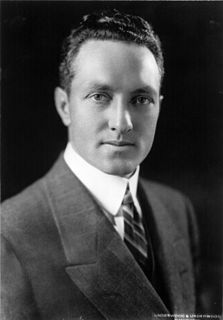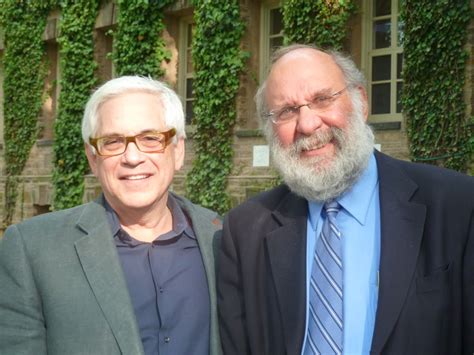Top 547 Imaginative Quotes & Sayings - Page 9
Explore popular Imaginative quotes.
Last updated on April 16, 2025.
You ask why London has to 'stand for' anything. One response is that in fact it always inevitably does. One could say at the moment it stands for a complex mix of multiculturalism and financial power. Interestingly, that is a political mix of progressive and oppressive. What I'm arguing is simply that we should take responsibility for the effects of 'our place' around the world. To take responsibility for our embeddedness. If you don't want to, so be it. It does demand an imaginative engagement with our planetary interdependence and that can be quite challenging.
I said earlier that I do not believe an artist's life throws much light upon his works. I do believe, however, that, more often than most people realize, his works may throw light upon his life. An artist with certain imaginative ideas in his head may then involve himself in relationships which are congenial to them.
The base of all artistic genius is the power of conceiving humanity in a new, striking, rejoicing way, of putting a happy world ofits own creation in place of the meaner world of common days, of generating around itself an atmosphere with a novel power of refraction, selecting, transforming, recombining the images it transmits, according to the choice of the imaginative intellect. In exercising this power, painting and poetry have a choice of subject almost unlimited.
The effect, if not the prime office, of criticism is to make our absorption and our enjoyment of the things that feed the mind as aware of itself as possible, since that awareness quickens the mental demand, which thus in turn wanders further and further for pasture. This action on the part of the mind practically amounts to a reaching out for the reasons of its interest, as only by its ascertaining them can the interest grow more various. This is the very education of our imaginative life.
I write at eighty-five for the same reasons that impelled me to write at forty-five; I was born with a passionate desire to communicate, to organize experience, to tell tales that dramatize the adventures which readers might have had. I have been that ancient man who sat by the campfire at night and regaled the hunters with imaginative recitations about their prowess. The job of an apple tree is to bear apples. The job of a storyteller is to tell stories, and I have concentrated on that obligation.
Through systematic exercising of our thinking faculties, we can train ourselves for exact clairvoyance. Imaginative Knowledge is the first step in supersensible perception, and through it we reach the first element of the supersensible it is possible to reach, namely, the supersensible body that we bear within our earthly body in physical space.
Thinking about time is to acknowledge two contradictory certainties: that our outward lives are governed by the seasons and the clock; that our inward lives are governed by something much less regular-an imaginative impulse cutting through the dictates of daily time, and leaving us free to ignore the boundaries of here and now and pass like lightning along the coil of pure time, that is, the circle of the universe and whatever it does or does not contain.
Humans in modern societies are driven by a perhaps desperate hope that they might find some way of mobilizing their theoretical and empirical knowledge and their evaluative systems so as both to locate themselves and their projects in some larger imaginative structure that makes sense to them. ... Furthermore, many modern agents would like it to be the case that the form of orientation which their life has is, if not true, at least compatible with the best available knowledge.
[The career a young man should choose should be] one that is most consonant with our dignity, one that is based on ideas of whose truth we are wholly convinced, one that offers us largest scope in working for humanity and approaching that general goal towards which each profession offers only one of the means: the goal of perfection ... If he works only for himself he can become a famous scholar, a great sage, an excellent imaginative writer [ Dichter ], but never a perfected, a truly great man.
As the worldly philosophers of the past affirmed, the goal of economics is to improve the way society functions. In The New Financial Order, Robert Shiller joins this proud tradition by directing his brilliant economic skills toward the creation of financial institutions designed to reduce the risks an unknown future visits on most members of our society and others. Shiller's imaginative and compelling analysis will appeal to all readers who share his passion for initiating not only a richer, but a better, century.
A gathering of Democrats is more sweaty, disorderly, offhand, and rowdy than a gathering of Republicans; it is also likely to be more cheerful, imaginative, tolerant of dissent, and skillful at the game of give-and-take. A gathering of Republicans is more respectable, sober, purposeful, and businesslike than a gathering of Democrats; it is also likely to be more self-righteous, pompous, cut-and-dried, and just plain boring.
I found so-called great art too pompous, too stiff. What at this time was called minor art was freer, more imaginative, more open to all kinds of unorthodox expression, all kinds of daring in the handling of materials, and I preferred to surround myself with this type of art than with the great collectors' pieces. I had always in my mind that I was collecting for learning.
Alan Rocke's Image and Reality does so many things vividly and convincingly: it shows how visual images led chemistry step by step to the reality of the microscopic world; how simple portrayals of the logic of substitution and combination were reified; brings to our attention the imaginative, neglected work of Williamson and Kopp; and takes a critical look at Kekule's daydream. And it beautifully delineates the essential place the imagination has in science. A rewarding, lively picture of chemistry in formation.
You know, sometimes I don't understand what's wrong with us. This is just about the most creative and imaginative country on earth—and yet sometimes we just don't seem to have the gumption to exploit our intellectual property. We split the atom, and now we have to get French or Korean scientists to help us build nuclear power stations. We perfected the finest cars on earth—and now Rolls-Royce is in the hands of the Germans. Whatever we invent, from the jet engine to the internet, we find that someone else carts it off and makes a killing from it elsewhere.
You know, and I know, the cause of this accident. It is due to the adventurous, pioneering spirit of our race. It has been like in the past, it is like that in the present, and I hope it will be in the future. Here is a great imaginative project, to build a machine with twice the speed and twice the height of any existing machine in the world. We all went into it with our eyes wide open. We were conscious of the dangers that were lurking in the unknown. We did not know what fate was going to hold out for us in the future.
If I'm ever working on a set and anyone talks about a master shot, I say there is no master shot. Before I even went to film school, I learned about movies by being in a British feature film, where everything was shot master shot, mid-shot, close-up. But I reject the idea of a master shot. You don't shoot everything mechanically; you find imaginative ways that serve the action.
One of the weaknesses of much abstract painting is the attempt to substitute the inventions of the intellect for a pristine imaginative conception. The inner life of a human being is a vast and varied realm and does not concern itself alone with stimulating arrangements of color, form and design. The term 'life' as used in art is something not to be held in contempt, for it applies all of its existence, and the province of art is to react to it and not to shun it. Painting will have to deal more fully and less obliquely with life and nature's phenomena before it can again be great.
It is unwise to equate scientific activity with what we call reason, poetic activity with what we call imagination. Without the imaginative leap from facts to generalisation, no theoretic discovery in science is made. The poet, on the other hand, must not imagine but reason--that is to say, he must exercise a great deal of consciously directed thought in the selection and rejection of his data: there is a technical logic, a poetic reasoning in his choice of the words, rhythms and images by which a poem's coherence is achieved.
To put it in a nutshell, the Central and South American high cultures of antiquity were entirely worthy of comparison with what the Old World had achieved by the time of the Han, the Gupta, and the Hellenistic age. The fact is that the Amerindian high cultures were a human modality of their own, and those Spaniards who came among them first would have had the sensation, if they had ever heard of such literature, of treading in a world of imaginative science fiction. But it was real, and the Amerindian achievements deserve all our sympathy and praise.
It is not necessary to have an extravagant food budget in order to serve things with variety and tastefully cooked. It is not necessary to have expensive food on the plates before they can enter the dining room as things of beauty in colour and texture. Food should be served with real care as to the colour and texture on the plates, as well as with imaginative taste. This is where artistic talent and aesthetic expression and fulfillment come in.
I'm interested in history because it's a discipline that requires a lot of effort from the imagination. You need to put in a lot of imaginative effort to figure out how people lived in an era that is not yours. And in that understanding of people from a different era, I feel, is an important gateway into humanity. Because you understand human behavior. In order to understand humanity, history is important.
The less you offer, the more readers are forced to bring the world to life with their own visual imaginings. I personally hate an illustration of a character on a jacket of a book. I never want to have someone show me what the character really looks like - or what some artist has decided the character really looks like - because it always looks wrong to me. I realize that I prefer to kind of meet the text halfway and offer a lot of visual collaborations from my own imaginative response to the sentences.
Marrying the right girl is even more imperative today than it was when I was 23 years old because it's so much harder to get on as an imaginative writer like me now. You need to have somebody who believes in what you're doing and who never is skeptical about what you're doing. My wife thought it was a great thing for me to be a writer because in practical terms it freed her to do what she wanted to do, which was work.
Leibniz accepted the argument that there must be indestructible simple entities if there is to be a complex world, but Epicurean morals and politics and anti-theology dismayed him. His 'monadology' which said that the true atoms of nature were unextended 'living mirrors,' was an imaginative and beautiful system, and even in many ways more modern than Epicurean atomism, than Epicurean atomism, but there was a reactionary aspect to it.
When faced with the inevitable, you always have a choice... As I learned during my liberal arts education, any symbol can have, in the imaginative context, two versions, a positive and a negative... If you spill your milk you're left with a glass which is either half empty or half full... You may not be able to alter reality, but you can alter your attitude towards it, and this, paradoxically, alters reality. Try it and see.
And when I look at a history book and think of the imaginative effort it has taken to squeeze this oozing world between two boards and typeset, I am astonished. Perhaps the event has an unassailable truth. God saw it. God knows. But I am not God. And so when someone tells me what they heard or saw, I believe them, and I believe their friend who also saw, but not in the same way, and I can put these accounts together and I will not have a seamless wonder but a sandwich laced with mustard of my own.
The traditional difficulty of balancing the mechanical with the imaginative schools of photography still operates. In schools of photography meaningful art education is often lacking and on the strength of their technical ability alone students, deprived of a richer artistic training, are sent forth inculcated with the belief that they are creative photographers and artists. It is yet a fact that today, as in the past, the most inspiring and provocative works in photography come as much (and probably more) from those who are in the first place artists.
Knowing Chris Bennett's Writing as I do, I expected Only Superhuman to have an imaginative plot and a compelling superheroine in Emry Blair. What I hadn't expected was for the backstory to make so much sense. Usually science is the first causality of superhero stories, tossed aside with the breezy rationalization: 'Hey, it's comics!' Only Superhuman is, to my knowledge, the first hard science superhero story. And the Story is the better for it.
In reality, there is a single integral community of the Earth that includes all its component members whether human or other than human. In this community every being has its own role to fulfill, its own dignity, its own inner spontaneity. Every being has its own voice. Every being declares itself to the entire universe. Every being enters into communion with other beings.
In every phase of our imaginative, aesthetic, and emotional lives we are profoundly dependent on this larger context of the surrounding world.
It is only my eye that has helped me. I am still hopeless with that thing called a scale ruler. I love color, but that comes very naturally to me. From the beginning, I never followed trends. If I was aware of them, I didn't care, for I believed as I do now, that rooms should be timeless and very personal. I don't set out to achieve a particular style. And I certainly don't have a 'look' - just a mishmash of everything that somehow, by instinct, usually turns out to be a warm imaginative, 'living room'.
Science and religion are very much alike. Both are imaginative and creative aspects of the human mind. The appearance of a conflict is a result of ignorance. We come to exist through a divine act. That divine guidance is a theme throughout our life; at our death the brain goes, but that divine guidance and love continues. Each of us is a unique, conscious being, a divine creation. It is the religious view. It is the only view consistent with all the evidence.
So far I had been travelling alone with my handbook and my Western Railway timetable: I was happiest finding my own way and did not require a liaison man. It had been my intention to stay on the train, without bothering about arriving anywhere: sight-seeing was a way of passing the time, but, as I had concluded in Istanbul, it was an activity very largely based on imaginative invention, like rehearsing your own play in stage sets from which all the actors had fled.
It is characteristic of the barbarian ... to insist upon seeing a thing "as it is." The desire testifies that he has nothing in himself with which to spiritualize it; the relation is one of thing to thing without the intercession of the imagination. Impatient of the veiling with which the man of higher type gives the world imaginative meaning, the barbarian and the Philistine, who is the barbarian living amid culture, demands the access of immediacy. Where the former wishes representation, the latter insists upon starkness of materiality, suspecting rightly that forms will mean restraint.
What people think about you is not supposed to matter much, so long as you yourself know where the truth lies; but I have found out, as have others who move in and out of newspaper headlines, that on occasion it can matter a good deal. For once you enter the world of headlines you learn there is not one truth but two: the one which you know from the facts; and the one which the public, or at any rate a highly imaginative part of the public, acquires by osmosis.
Motorcycle manufacturer Harley-Davidson is a prime example of an American company that uses employment conditions to boost productivity. Current CEO James Ziemer - who started with the company while in high school has negotiated imaginative contracts with the unions representing Harley's workers, agreeing to keep production in the U.S. in exchange for constantly reducing total labor costs through automating tasks and changing work rules. Because Harley regularly reassigns workers whose tasks have been automated to other parts of the company.
But what is now encompassed by the one word (“school”) are two very different kinds of institutions that, in function, finance and intention, serve entirely different roles. Both are needed for our nation’s governance. But children in one set of schools are educated to be governors; children in the other set of schools are trained for being governed. The former are given the imaginative range to mobilize ideas for economic growth; the latter are provided with the discipline to do the narrow tasks the first group will prescribe.
What have we got here in America that we believe we cannot live without? We have the most varied and imaginative bathrooms in the world, we have kitchens with the most gimmicks, we have houses with every possible electrical gadget to save ourselves all kinds of trouble - all so that we can have leisure. Leisure, leisure, leisure! So that we don't go mad in the leisure, we have color TV. So that there will never, never, be a moment of silence, we have radio and Muzak. We can't stand silence, because silence includes thinking. And if we thought, we would have to face ourselves.
One must search diligently to find laudatory comments on education (other than those pious platitudes which are fodder for commencement speeches). It appears that most persons who have achieved fame and success in the world of ideas are cynical about formal education. These people are a select few, who often achieved success in spite of their education, or even without it. As has been said, the clever largely educate themselves, those less able aren't sufficiently clever or imaginative to benefit much from education.
Conversations...begin with the sort of imaginative engagement you get when you read a novel or watch a movie or attend to a work of art that speaks from some place other than your own. So I'm using the word 'conversation' not only for literal talk but also as a metaphor for engagement with the experience and ideas of others. And I stress the role of the imagination here because the encounters, properly conducted, are valuable in themselves. Conversation doesn't have to lead to consensus about anything, especially not values; it's enough that it helps people get used to one another.
Nevertheless, hateful as saying 'No' always is to an imaginative person, and certain as the offence may be that it will cause to individuals whose own work does not require isolated effort, the writer who is engaged on a book must learn to say it. He must say it consistently to all interrupters; to the numerous callers and correspondents who want him to speak, open bazaars, see them for 'only' ten minutes, attend literary parties, put people up, or read, correct and find publishers for semi-literate manuscripts by his personal friends.
Progress is the exploration of our own error. Evolution is a consolidation of what have always begun as errors. And errors are of two kinds: errors that turn out to be true and errors that turn out to be false (which are most of them). But they both have the same character of being an imaginative speculation. I say all this because I want very much to talk about the human side of discovery and progress, and it seems to me terribly important to say this in an age in which most non-scientists are feeling a kind of loss of nerve.
But some of the nonsense was evil, since it concealed great crimes. For example, teachers of children in the United States of America wrote this date on blackboards again and again, and asked the children to memorize it with pride and joy: 1492. The teachers told the children that this was when their continent was discovered by human beings. Actually, millions of human beings were already living full and imaginative lives on the continent in 1492. That was simply the year in which sea pirates began to cheat and rob and kill them.
Without doubt, the foremost band for decades has been the One O'Clock Lab Band at the University of North Texas. Through its many incarnations and under various leaders, they have demonstrated the highest qualities of musicianship imaginable, plus a willingness to balance their big band tradition with creative exploration. Astounding ensemble work, insightful interpretations of the arrangements, imaginative writing, and above all, a loving attention to musicality . . . these people play beautifully.
People cannot stand the saddest truth I know about the very nature of reading and writing imaginative literature, which is that poetry does not teach us how to talk to other people: it teaches us how to talk to ourselves. What I'm desperately trying to do is to get students to talk to themselves as though they are indeed themselves, and not someone else.
I have always considered imaginative truth to be more profound, more loaded with significance, than every day reality... Everything we dream about, and by that I mean everything we desire, is true (the myth of Icarus came before aviation, and if Ader or Bleriot started flying it is because all men have dreamed of flight). There is nothing truer than myth... Reality does not have to be: it is simply what is.
In my opinion, there is a huge lack of imaginative, unconventional music being created by artists today and what little there is, goes widely unappreciated by the masses. 'Port Blue' is my attempt at re-creating the music I want to hear and the emotions I want to feel." "If by chance you ever feel as though you’ve come to know these songs, please consider yourself a friend because in a manner of speaking, you know me. This music is my heart and soul. This is who? I am." (Adam R. Young, 2006)
From being quite sure of himself and his future he becomes not at all sure. If he be an imaginative boy a door is torn open and for the first time he looks out upon the world, seeing, as though they marched in procession before him, the countless figures of men who before his time have come out of nothingness into the world, lived their lives and again disappeared into nothingness. The sadness of sophistication has come to the boy.
Thomas Berry calls the Ecozoic Era, a time when we recognize the imperative of caring for the planet as a means of compassionate survival. We do not know what the outcome is going to be, but we have an opportunity to make these kinds of creative and imaginative leaps of thought and actions both locally and globally. This is completely antithetical to the direction George W. Bush is leading this nation. I do trust that the open space of democracy is ultimately the open space of our hearts and that we can follow our own leadership that carries a long-term view way beyond "four more years."
There are some advantages to being a writer: you do generally get better as you get older. I think I understand things better. When I was a kid, I was kind of guessing at the emotion. Now I'm interested in writing more difficult books, books that confront the facts of life, of death and dying and failure - the majority of life. You write outwardly imaginative books when you're younger. When you're older you apply imagination to internal experience.
The best thing you can do for a song is to hear it on the radio and to imagine what it could mean to you and then kinda forget the words. Just imagine how you felt when you heard it, if it was one of your songs. If it became one of your songs. If it meant whatever it meant for you and as soon as you see the visual, you get a rapid eye movement relationship with the song instead of an imaginative one. I think that can be dangerous because I don't think I'd want to be listening to a song on the radio and thinking about the video. Whatever that one interpretation was
Note, to-day, an instructive, curious spectacle and conflict. Science, (twin, in its fields, of Democracy in its)—Science, testing absolutely all thoughts, all works, has already burst well upon the world—a sun, mounting, most illuminating, most glorious—surely never again to set. But against it, deeply entrench'd, holding possession, yet remains, (not only through the churches and schools, but by imaginative literature, and unregenerate poetry,) the fossil theology of the mythic-materialistic, superstitious, untaught and credulous, fable-loving, primitive ages of humanity.
In our time ... a man whose enemies are faceless bureaucrats almost never wins. It is our equivalent to the anger of the gods in ancient times. But those gods you must understand were far more imaginative than our tiny bureaucrats. They spoke from mountaintops not from tiny airless offices. They rode clouds. They were possessed of passion. They had voices and names. Six thousand years of civilization have brought us to this.
When you will, make a resolution, set your jaw, you are expressing an imaginative fear that you won't do the thing. If you knew you would do the thing, you would smile happily and set about it. And this fear (since the imagination is always creative) comes about presently and you slide down into the complete slump of several weeks or years - the very thing you dreaded and set your jaw against.
This is a major, wide-ranging, and comprehensive book. A philosophical investigation that is also a literary and historical study, Truth and Truthfulness asks how and why we have come to think of accuracy, sincerity, and authenticity as virtues. Bernard Williams' account of their emergence is as detailed and imaginative as his defense of their importance is spirited and provocative. Williams asks hard questions, and gives them straightforward and controversial answers. His book does not simply describe and advocate these virtues of truthfulness; it manifests them.
Far from affording artists continuous inspiration, mass-media sources for art have become a dead end. They have combined with the abstractness of institutional art teaching to produce a fine-arts culture given over to information and not experience. This faithfully echoes the drain of concreteness from modern existence- the reign of mere unassimilated data instead of events that gain meaning by being absorbed into the fabric of imaginative life.
By delivering experience, novels can alter the stance we adopt toward news - not much, I'm sure, but they can make it a little more difficult for us to consign "other people" to our tidy boxes. Widening our imaginative life might - it's not hard to imagine - also develop our ability to contemplate counterfactuals and our capacity to speculate about how things might differ from how they're being represented.
We should all know this: that listening is not talking; [it] is the gifted and great role and the imaginative role. And the true listener is much more beloved, magnetic than the talker, and he is more effective, and learns more and does more good. And so try listening. Listen to your wife, your husband, your father, your mother, your children, your friends; to those who love you and those who don't, to those who bore you, to your enemies. It will work a small miracle. And perhaps a great one.
Simplicity is a pleasant thing in children, or at any age, but it is not necessarily admirable, nor is affectation altogether a thing of evil. To be normal, to be at home in the world, with a prospect of power, usefulness, or success, the person must have that imaginative insight into other minds that underlies tact and savoir-faire, morality and beneficence. This insight involves sophistication, some understanding and sharing of the clandestine impulses of human nature. A simplicity that is merely the lack of this insight indicates a sort of defect.
The capacity for imaginative reflex, for moral risk in any human being is not limitless; on the contrary, it can be rapidly absorbed by fictions, and thus the cry in the poem may come to sound louder, more urgent, more real than the cry in the street outside. The death in the novel may move us more potently than the death in the next room. Thus there may be a covert, betraying link between the cultivation of aesthetic response and the potential of personal inhumanity.










